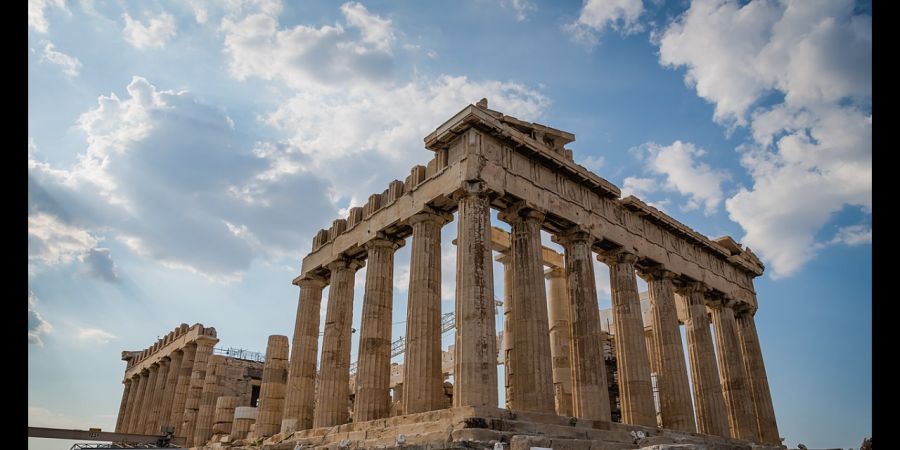

Athens and Sparta, The two major city states that ruled much of ancient Greece were Athens and Sparta. During the Peloponnesian Wars, they fought each other and frequently engaged in rivalry. They also came together at other times to defend the Greek lands from foreign invaders. The two cities' cultures were vastly distinct. Athens was more concerned with the arts and education, while Sparta was almost entirely concerned with warfare and how to fight.
Interesting Facts About Ancient Greece The Greeks frequently ate their meals with their backs to the table.
The yo-yo, which they invented, is regarded as the second-oldest toy in the world, after the doll.
Slaves made up about one third of the population in some city-states.
There were approximately 100 city-states in ancient Greece, in addition to Sparta and Athens.
A lot of the Greek culture, including their gods, architecture, language, and even how they ate, was copied by the Romans!
Greek hero Pheidippides fought the Persians by running 150 miles from Marathon to Sparta. He ran 25 miles from Marathon to Athens to announce the Greeks' victory after the war. The marathon running race gets its name from this.
In the city of Athens, large juries of 500 citizens were used for law trials. That is significantly more than the current twelve.
From the Greek Dark Ages (ca. 1050–ca. 750 BC) to the end of antiquity (ca. 600 AD), the term "Ancient Greece" refers to a period of Greek history. Although historians tend to use the term more precisely, it can be used to refer to all of Greece's history prior to or including the Roman Empire. Some incorporate the times of the Minoan and Mycenaean civilizations, while others contend that these civic establishments were so not quite the same as later Greek societies that they ought to be classed independently. The Greek Dark Ages are followed by the Archaic period, which began around 800 BC and lasted until the second Persian invasion of Greece in 480 BC. However, the majority of historians now extend the term back to approximately 1000 BC, when the first Olympic Games were held.[citation needed] The poleis, or "city-states," of Ancient Greece, as well as the Greek alphabet and early Greek literature, emerged during this time. The Greek democracy, art, theater, literature, and philosophy flourished during the Classical period, which began in the 5th century BC during the Greco-Persian wars and was characterized by increased autonomy from the Persian Empire. The Classical Greek period traditionally came to an end with Alexander the Great's death in 323 BC. The Hellenistic period, which began with the rise of the Roman Empire at the end of the first millennium BC, followed. Some authors treat the Ancient Greek civilization as a continuum that lasted until the spread of Christianity in the third century AD.[citation needed] Many historians consider Ancient Greece to be the foundational culture of Western civilization. However, not everyone views the Classical Greek and Hellenic periods as distinct. The Roman Empire was heavily influenced by Greek culture, which spread to many parts of Europe in the form of Greek culture. The language, politics, educational systems, philosophy, art, and architecture of the modern world have all been greatly influenced by ancient Greece, particularly during the Renaissance in Western Europe and subsequent neo-classical revivals in Europe and the Americas in the 18th and 19th centuries.
